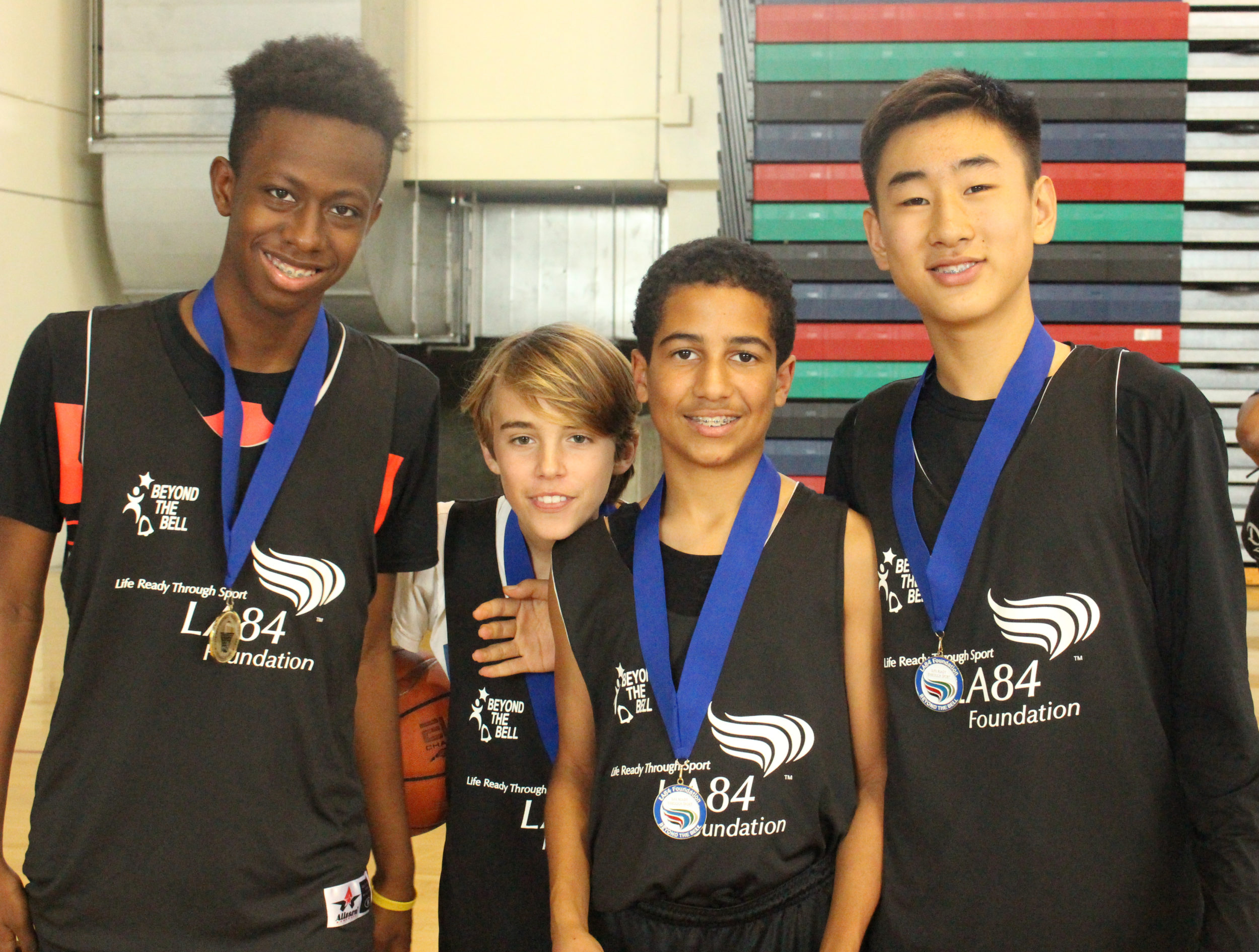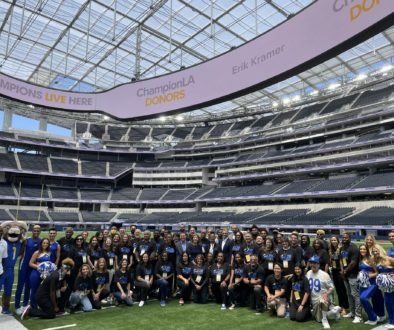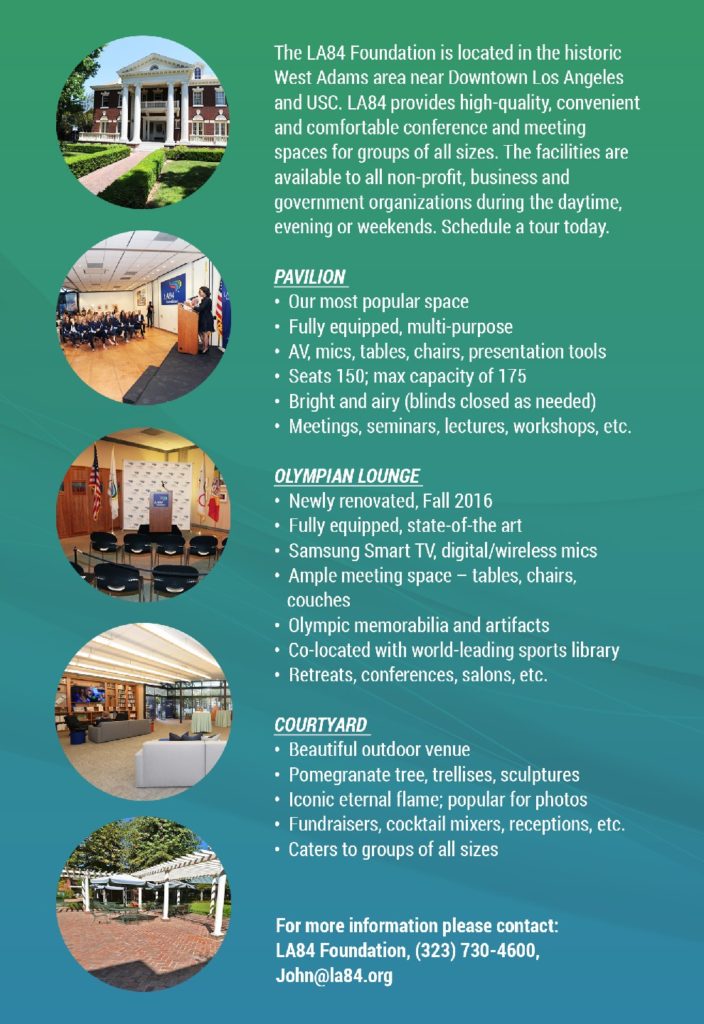2017 LA84 Summit Recap – The Data: The Power of School-Based Sports
By Nolan Ortiz
Panelists
Dr. Tiffany Berry, Research Associate Professor, Claremont Graduate University & Associate Director, Claremont Evaluation Center
Keith Ramirez, Site Coordinator, Beyond the Bell Youth Services
Interviewer: Pablo Garcia, Director of Planning & Special Projects, United States Soccer Federation
Several years ago, LA84 and the Beyond the Bell program at LAUSD came together for a study about what the key conceptual drivers were going to be to develop a foundational process and system for success in an afterschool sports-based program. The study would focus that the school-based program should be serving kids where they are (at school), while also providing greater facilitation and connection between sports and school.
The evaluation included both qualitative and quantitative data. The qualitative data included conducting surveys with current high school athletes who had previously participated in LA84 Foundation middle school programs. The surveys focused on how they students viewed themselves and their work ethic and how that translated into their academic classes.
READ MORE: LA84, 400+ Attendees Celebrate Play For All Movement At 2017 LA84 Foundation Summit
Dr. Berry continued to explain that middle school is important because early adolescence is such a critical part of our developmental lifespan. “The fact that we are able to use sports as a mechanism to really connect the identity for these kids to really develop them through the help of this caring, supporting coach, is a really important piece of the foundational elements that are helping us succeed,” Dr. Berry said.
Dr. Berry also noted that the Beyond The Bell program has seen participation rates increase at a rapid rate, especially with girls participation. Additionally, students are “sport-sampling,” which increases their physical activity and the chance they discover a sport they are passionate about. Another crucially important key to success? Coaches.
On the ground level, Ramirez shared how having quality and positive coaching is invaluable in the lives of middle-school students. He told the story of a young athlete, Aaron, who he asked to write down his goals. “I told him that if you ever doubt yourself again, you can look at this paper and that’s where you can see that you did it,” Ramirez said.

“Part of the reason for establishing this connection came about as a result of the intentionality in the time and training dedicated to developing the program-quality piece of positive coaching and being able to facilitate the environment and not just skill development,” added Berry. Ramirez echoed the important of simply providing a safe place for kids to go after school. “In the beginning, Beyond The Bell was kind of viewed as more of coaching and then not looking at the big picture. But now, I can see the impact I have on students and what the students bring back as well.”
So what is next? For Berry, the future is about implementing the lessons and triumphs from Beyond The Bell on a wider scale. Moving forward, Beyond The Bell can be a template of how school-based sports can be a key cog of providing Play For All access in youth sports.
Learn more about Beyond The Bell here.




